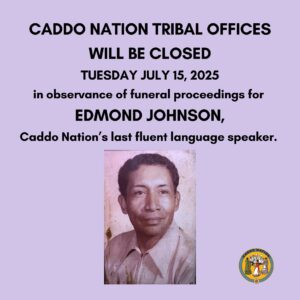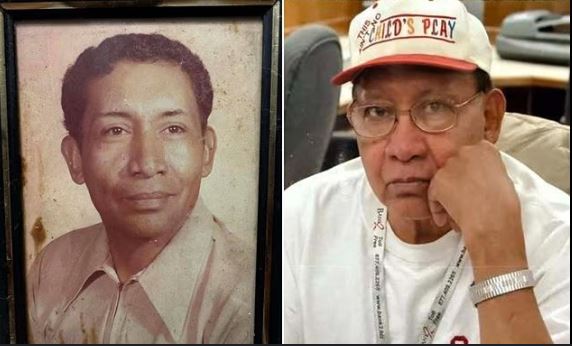The Caddo Nation of Oklahoma is mourning the profound loss of Edmond Johnson, who passed away at the age of 95 on July 14. Johnson was not just a respected elder; he was the last fluent speaker of the ancient Caddo language, making his death an “irreplaceable loss to our heritage.”
The tribe announced Johnson’s passing on Facebook, describing him as a “vital knowledge bearer of our language” and a “treasured elder.” To honor his memory and legacy, the Caddo Nation closed their Tribal Administration Office on Tuesday, July 15, for his funeral proceedings. This closure served as “a moment for reflection, mourning and gratitude for the knowledge and spirit he carried on behalf of our ancestors and future generations.” The tribe urged everyone to “honor him in your own way — through prayer, remembrance, or by simply speaking his name.”

Bobby Gonzalez, chairman of the Caddo Nation, emphasized the deep connection between the language and the tribe’s identity, telling local ABC station KOCO News 5 that the ancient language is “what makes us Caddo.”
For several years, Johnson, whom Gonzalez said “meant a lot to our people,” had been working diligently with Alaina Tahlate, the tribe’s language preservation director, to ensure the Caddo language would live on. Tahlate praised Johnson, noting, “He was really good at explaining things, [an] awesome storyteller.” She stressed the language’s importance, stating, “The language connects every part of our culture together. Use your language however much, or however little, that you know.”
In a testament to their commitment to their rich heritage, the tribe plans to establish a fund and continue their work to preserve the language in Johnson’s honor. Gonzalez affirmed, “We’re doing everything we can to preserve what we can with the people that we know that can still understand it.”
The Caddo people are the descendants of agriculturalists whose ancient homelands spanned what is now Louisiana, Texas, Arkansas, and Oklahoma. Archeological discoveries suggest the tribe’s existence dates back as early as 900 AD. Their thriving communities, once spread along major rivers, were dispersed after the arrival of Spanish explorer Hernando de Soto’s expedition in 1542. Following “multiple forced removals,” the Caddo eventually settled in what is now Caddo County in Oklahoma.
Despite historical challenges, the Caddo Nation remains resilient. As stated on their website, “Twentieth-century efforts to revitalize economic, social, political and religious institutions have enabled Caddo people to maintain a distinctive identity today and continue building toward a hopeful and prosperous future.”



